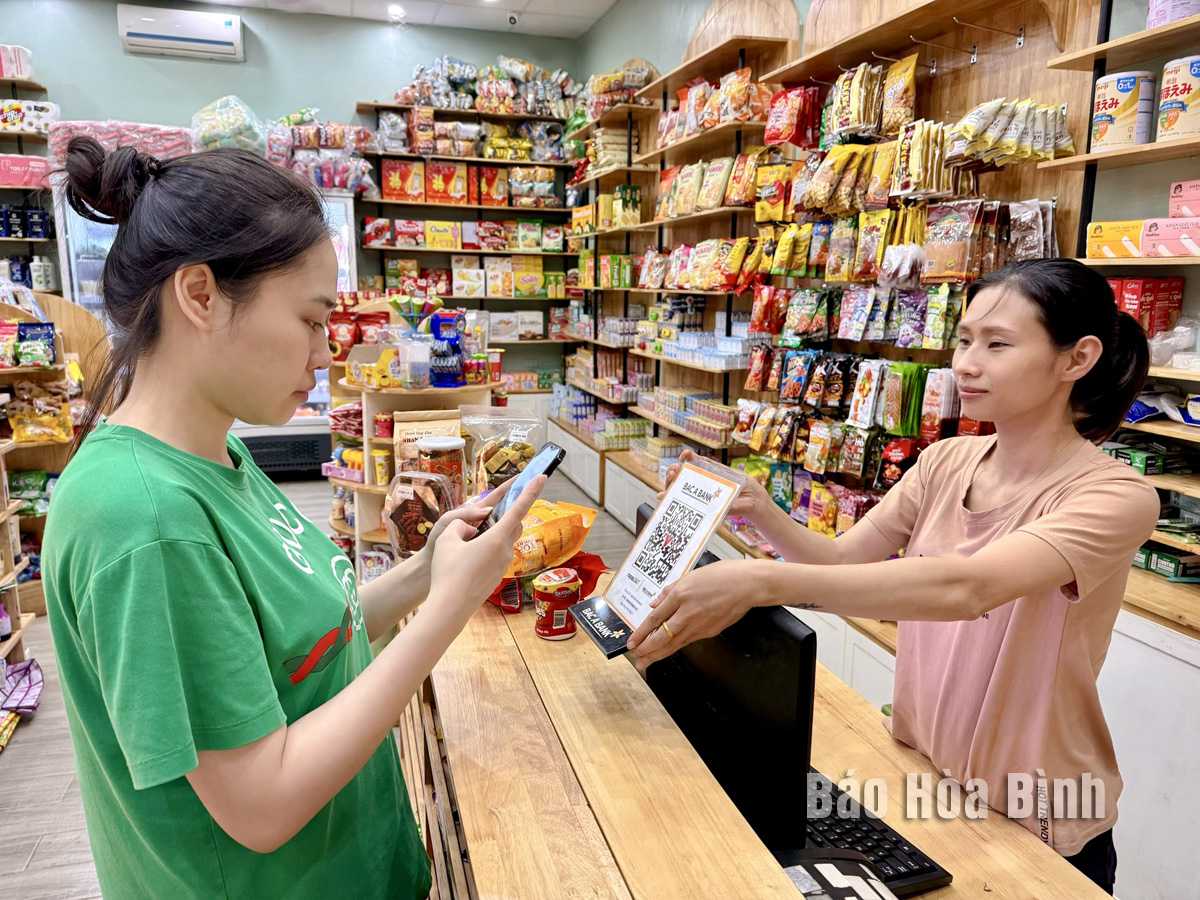



According to the State Bank of Vietnam – Hoa Binh branch, most business and service stores in Hoa Binh city currently accept non-cash payment. Photo taken at Bao Anh store, Bac Tran Hung Dao urban area, Hoa Binh city.
Non-cash payment helps limit the amount of cash in circulation, reduce social costs, expand space, and shorten time for the process of buying and selling goods and services.
In the medical field, non-cash payment activities have achieved many positive results. According to a representative of the provincial General Hospital, since the beginning of this year, thousands of patients have made non-cash payments, a year-on-year increase of over 20%. This modern form of payment helps patients shorten waiting times, and reduces human resources making payments to the hospital.
Over the past years, the State Bank of Vietnam – Hoa Binh branch (SBV Hoa Binh) has directed local credit institutions to continue implementing solutions to promote digital transformation, with focus on expanding non-cash payments. As a result, non-cash payment activities continue to achieve positive results, especially in the fields of health, education and social security.
To date, nearly 661,000 people, equivalent to over 75% of the province’s population, have had transaction accounts at banks or other licensed organisations. The total number of ATMs in operation is 73, and the total number of point of sale (POS) machines is 492. The rates of customers paying electricity and water bills through banks are over 75% and 58.6%, respectively. And 100% of educational institutes in the province have established a non-cash tuition fee collection system; however, the collection of tuition fees without using cash has reached only 21.2%.
According to a representative of SBV Hoa Binh, the sector continues to direct commercial banks in the locality to improve service quality and effectively operate the non-cash payment equipment system; strengthen inspections and strictly handle violations in complying with the provisions of law and the State Bank of Vietnam; upgrade infrastructure and equipment quality. It will also coordinate with local press agencies to regularly update measures to identify risks, and prevent and handle violations in cashless payment activities.